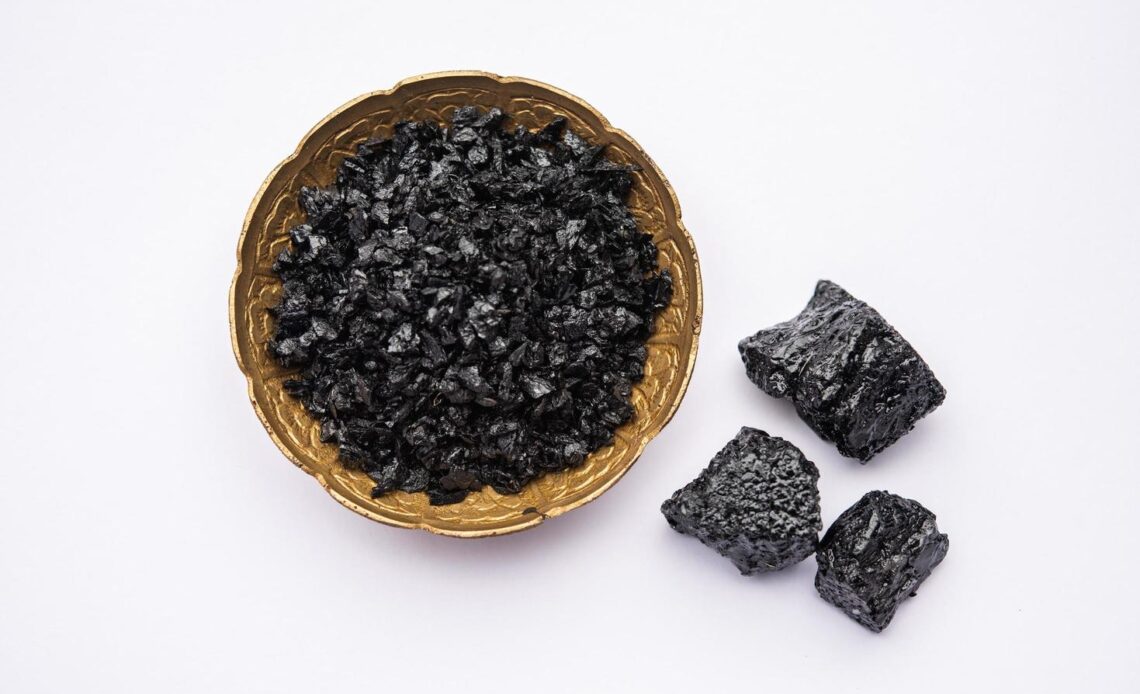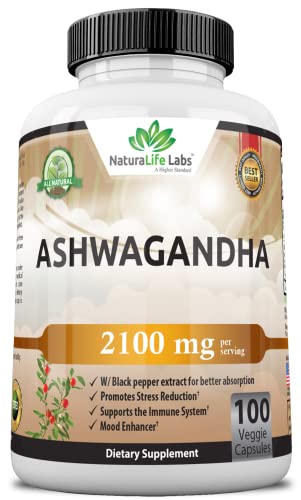
Ayurvedic medicine has relied on herbs like ashwagandha and shilajit for centuries to promote good health. These natural remedies offer a variety of evidence-based benefits, but they also have some differences. This article explores the origins, uses, and key distinctions between shilajit and ashwagandha to help determine which one may be best for your needs.
What is Shilajit?
Shilajit is a thick, tar-like substance that seeps from mountain rocks, primarily in the Himalayas. It contains high amounts of fulvic and humic acids, over 80 minerals, and various other compounds. Known as the “destroyer of weakness,” shilajit has been used in Ayurveda to increase energy, testosterone, and cognition.
Specific benefits of shilajit include:
- Boosts energy metabolism and fights fatigue
- Raises testosterone levels and libido in men
- Enhances memory, learning, and cognitive processes
- Has anti-inflammatory, antioxidant, and detoxifying effects
- Stimulates the immune system
Shilajit is available as a resin, powder, or capsules. The recommended dosage is 100-500 mg per day. Potential side effects include dizziness, headaches, and mild stomach upset in some cases.
What is Ashwagandha?
Ashwagandha is a prominent herb in Ayurvedic healing originating from India and parts of Africa. The root and berry are most commonly used. It contains active compounds like withanolides, alkaloids, and choline. Ashwagandha has traditionally been employed as a rasayana or rejuvenator.
Key benefits of ashwagandha include:
- Alleviates stress, anxiety, and depression
- Boosts thyroid function and metabolic rate
- Reduces blood sugar levels in diabetics
- Lowers inflammation and relieves joint pain
- Increases muscle mass, strength, and exercise recovery
- Enhances memory, focus, and cognitive abilities
- Slows aging for healthier skin and joints
The typical ashwagandha dosage is 300-600 mg per day. Potential side effects are mild and include nausea, drowsiness, and diarrhea.
Key Differences Between Shilajit and Ashwagandha
While Shilajit and Ashwagandha both hold esteemed places in Ayurveda’s herbal toolbox, they’re like two sides of a well-balanced coin. Let’s dive deeper into what sets them apart:
- Source of Origin:
- Shilajit: Comes from mountain rocks, especially in the Himalayas. It’s like a concentrated essence of the Earth’s energy.
- Ashwagandha: Grown as a plant, it thrives in the dry regions of India and Africa. A grounding and nurturing herb.
- Composition:
- Shilajit: Loaded with over 80 minerals, it’s a mineral powerhouse that provides numerous bodily benefits.
- Ashwagandha: Rich in active compounds like withanolides and alkaloids, which promote emotional well-being and mental clarity.
- Primary Benefits:
- Shilajit: Known for physical enhancements, boosting energy, testosterone, and metabolism. It’s like the body’s fitness trainer.
- Ashwagandha: Famed for its emotional and mental healing properties, offering a tranquil oasis for stress, mood, and focus.
- Health Qualities:
- Shilajit: Strong in antioxidant and detoxifying properties, it’s like having a personal bodyguard against harmful substances.
- Ashwagandha: Specializes in regulating thyroid and blood sugar, providing a soothing touch to those specific health areas.
- Forms Available:
- Shilajit: Whether in resin, powder, or capsule, it provides versatile ways to incorporate into your wellness routine.
- Ashwagandha: Typically found as a powder or concentrated extract, it’s easy to blend into teas, smoothies, or supplements.
- Dosage:
- Shilajit: Usually taken in 100-500 mg daily, allowing a flexible range for various needs.
- Ashwagandha: Recommended at 300-600 mg per day, offering a moderate yet potent daily boost.
So, in a nutshell, Shilajit is your go-to for physical empowerment, while Ashwagandha shines in balancing the mind’s landscape. The beauty is that both offer complementary qualities, each providing antioxidant, anti-inflammatory, and adaptogenic support.
Choosing the Best Ayurvedic Herb for You
When standing at the herbal crossroads between Shilajit and Ashwagandha, your personal health goals become your compass. Here’s a guide to help you decide:
- For the Energetic Go-Getters: Shilajit revitalizes lost energy, enhances vitality, libido, and supercharges workout performance.
- For the Soul Searchers: Ashwagandha is the calm amidst the storm, alleviating stress, anxiety, depression, and even insomnia.
- Brain Boosters: Want to sharpen memory, focus, and concentration? Shilajit’s your cognitive ally.
- Specialized Healing: Dealing with fertility issues, thyroid imbalances, or diabetes? Ashwagandha extends its therapeutic touch.
- For Immunity Warriors: If frequently under the weather, Ashwagandha optimizes immune function.
- For the Pain Fighters: Battling muscle or joint inflammation and pain? Shilajit to the rescue!
And here’s the exciting part: these two herbs can join forces! Combining them amplifies their benefits, creating a holistic wellness synergy. It’s always a good idea to consult an Ayurvedic practitioner to tailor the optimal blend for you.
Both shilajit and ashwagandha are safe, effective Ayurvedic tonics for balanced mind-body health. Learning their unique strengths lets you choose the best one for your needs. With thousands of years of traditional use and modern scientific backing, these herbs offer a holistic way to restore vitality and well-being.





